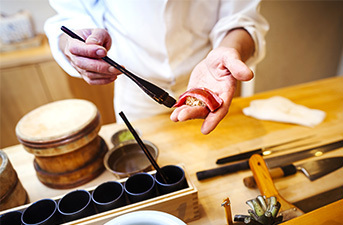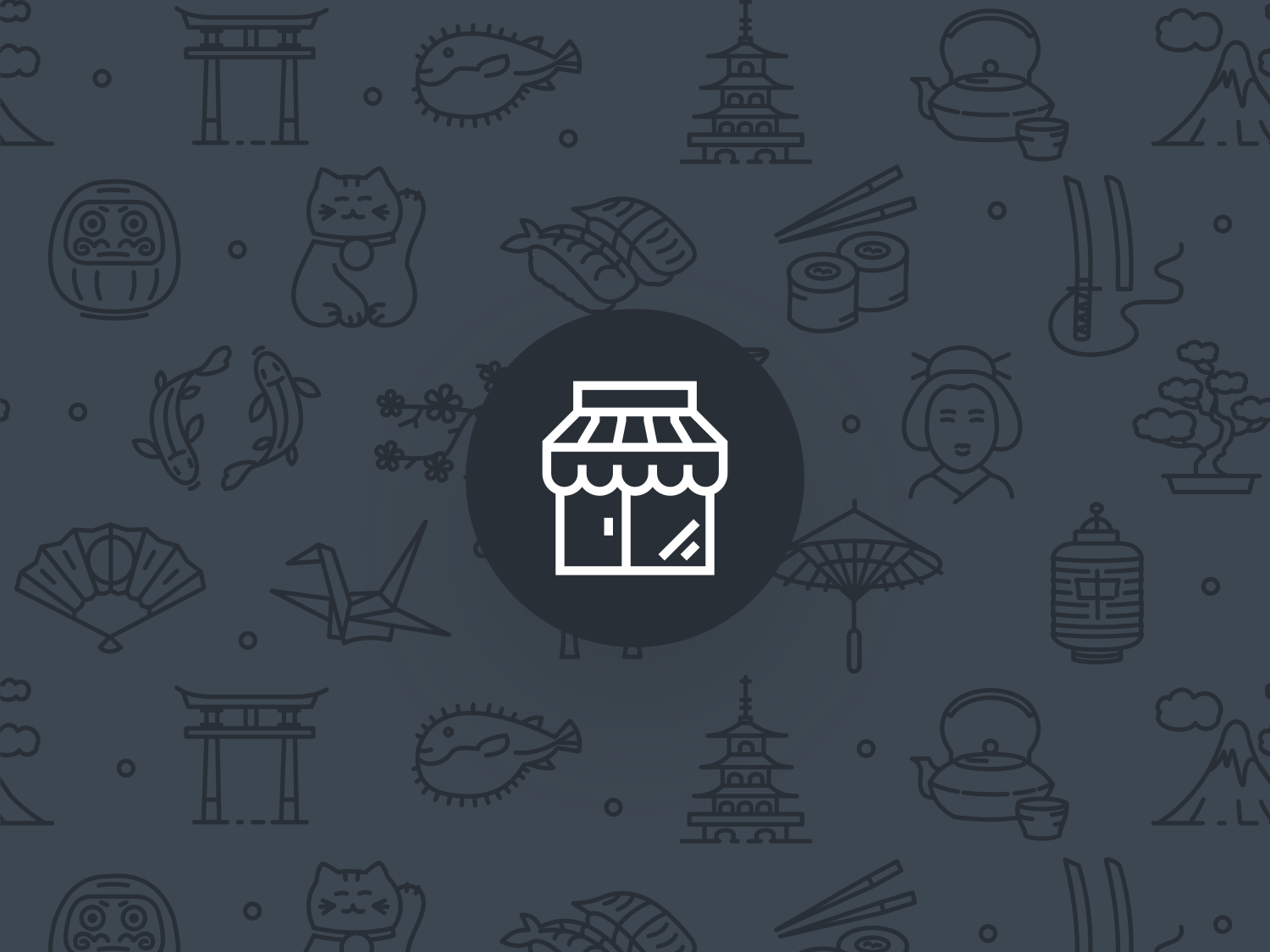Restaurants(10134)
Sushi Kimura Nihombashi
One city’s loss is another’s gain. Following a 15-year stint at one of New York City’s most exclusive sushi restaurants, Kimura Koji arrives in Nihonbashi with an Edomae omakase concept shaped by fish from his hometown in Hachinohe.
Beef Nagayoshi
Opened in 2014 in Shinjuku’s Arakicho, Beef Nagayoshi serves an approachable A5-grade wagyu omakase course, with the owner handling all the grilling and dining is done at izakaya-style counter seating.
Nishiazabu Nikusui Yamamoto
Drama in the look and on the grill — setting ground in Nishiazabu, Nikusui Yamamoto is one-upping the legacy of yakiniku with a refined and luxurious take on Japanese barbecue.
Kuru Kuru Wanko
Conveyor belt sushi meets the iconic red lacquerware bowls of Iwate’s famed wanko soba, here at this restaurant in Shinjuku’s Kabukicho district. Snatch up as many bowls as you can eat.
Restaurant Tsukimichi
With its modern washoku interpretations, Restaurant Tsukimichi arrives in Fukuoka with a grander-than-grand scheme, magnificent dining rooms and a team of full-time assistants to tap into the city’s appetite for all things royal.
Yakiniku Roasken Azabu-Juban
Chef Serada Tomoyuki hand-selects leaner cuts of A5-grade wagyu beef for use at his restaurant, giving the wagyu at this yakiniku restaurant a beefier taste when compared to other restaurants.
FARM TO TABLE KANBE
Through its immersive projection mapping experience, FARM TO TABLE KANBE can express Kobe’s terroir and highlight the vegetables grown under the influence of the Rokko mountain range’s water and seasons.
Nihon Yakiniku Hasegawa Bettei Ginza
Operating under the concept of “a museum of supreme food and space” in the heart of Ginza, Nihon Yakiniku Hasegawa Bettei Ginza merges the principles of Korean barbecue with Japanese cuisine in one wonderful, luxurious collaboration.
Naha Miyachiku
Naha Miyachiku in Okinawa’s capital Naha prides itself on serving award-winning Miyazaki wagyu and a dizzying lineup of seafood courses featuring lobster and abalone. Even its interior evokes Miyazaki’s natural landmarks.
Basashiya Masashi Asakusa
A little slice of Kyushu in Asakusa with a view of the Azuma-bashi Bridge, Basashiya Masashi offers specialties from southern Japan, with their particular specialty being Kumamoto’s signature horse meat sashimi.
Suganoya Shinshigai
Kumamoto’s self-professed biggest purveyor of horse meat — the region’s most famous delicacy — has its most popular outlet in the beating heart of the city’s nightlife, the Shinshigai shopping street.
Suganoya Ginza-dori (Daiwa Roynet Hotel)
Kumamoto’s culinary history is best exemplified at this horse meat restaurant in the Ginza-dori Daiwa Roynet Hotel, just south of Kumamoto Castle.
amorphous Akasaka
Like its moniker, which describes a state where atoms and molecules lack structure, this innovative Akasaka restaurant eschews the predictable rhythms of dining standards.
Butasute KITTE Marunouchi
Butasute KITTE Marunouchi in Tokyo shines the spotlight on Mie Prefecture with hearty sukiyaki and shabu shabu meals featuring Ise wagyu beef — stunning city views included.
Yakiniku Heijoen Aqua City Odaiba
Set on the man-made island Odaiba, this yakiniku restaurant only serves the choicest cuts of A5-ranked wagyu and specially selected Japanese whiskies to compliment the meat-heavy fare.
Hatsuneya
This kaiseki restaurant in Kawagoe — Saitama’s “Little Edo” — first opened in 1868 and now stands at the intersection of tradition and contemporary, offering a hyper-seasonal kaiseki menu.
Yakiniku Jinseki Nishiazabu
Recently opening its doors in the spring of 2024, this hidden yakiniku restaurant in Nishi Azabu is introducing Jinsekikogen’s Jinseki beef, a breed of kuroge wagyu so rare that it is called “phantom wagyu.”
Nouka no Daidokoro Shinjuku Sanchome
Entrusting their day-fresh vegetables from 600 domestic farmers, taste a different side of Japanese vegetarian cuisine at this farm-to-table restaurant next to Shinjuku-sanchome Station.
Tajimaya Namba City
15 condiments, 7 broth choices and an endless meat festival — indulge in slice-to-order wagyu through endless permutations in this all-you-can-eat shabu shabu and sukiyaki venue in Namba.
Sapporo Kani-ya Kyoto Branch
The Kyoto outlet of this venerable Hokkaido crab restaurant chain serves Japan’s finest crabs, including the vaunted hon-tarabagani, or red king crab — the most expensive and finest of Japan’s crabs.
MOSKA by Ginger Garden
This Omotesando cafe boasts gorgeous floral displays, Instagram-worthy afternoon teas and occasional collaborations with some of the cutest Sanrio mascot characters, including My Melody, Kuromi and Hello Kitty.
Chibo Sonezaki
Rooted in Osaka but enhanced with international ingredients, Chibo offers an okonomiyaki and teppanyaki experience that embraces the three distinct flavors of “before, after and aftertaste.”
Iinoji
Basked in warm light, Iinoji offers a home-away-from-home atmosphere, serving impeccably executed sukiyaki made with kuroge wagyu and Omi beef. Amidst the fast-paced rhythm of Nihonbashi, the restaurant invites diners to slow down.
Ebisu Taku
A genie-in-the-bottle restaurant, Ebisu Taku breathes new life into the classic omakase playbook by flipping the script — the chef creates a menu based on what the guests want.
Soba Ikkon
Simplicity made special — set in Ebisu’s burgeoning food scene, Soba Ikkon trots out smooth, Edo-style nihachi soba and a kaiseki-style course menu that delights all demographics.
Sapporo Kani-ya Main Branch
The Sapporo outlet of this venerable Hokkaido crab restaurant continues to deliver on its mission to serve Japan’s finest crabs, particularly the hon-tarabagani red king crab, presented in a number of different styles.
Sapporo Kani-ya Nagoya Branch
Located in the heart of Nagoya’s nightlife district, this restaurant is a seven-story shrine to the deliciousness of Japanese crab — including the hon-tarabagani red king crab — preparing it in a variety of different ways.
Oden Sumiyoshi Shinsaibashi
A love letter to the nostalgic oden, from Osaka — Oden Sumiyoshi Shinsaibashi is a soul-warming stop in the city, serving innovative oden swimming in a broth that takes six hours to prepare, all presented in kaiseki style.

